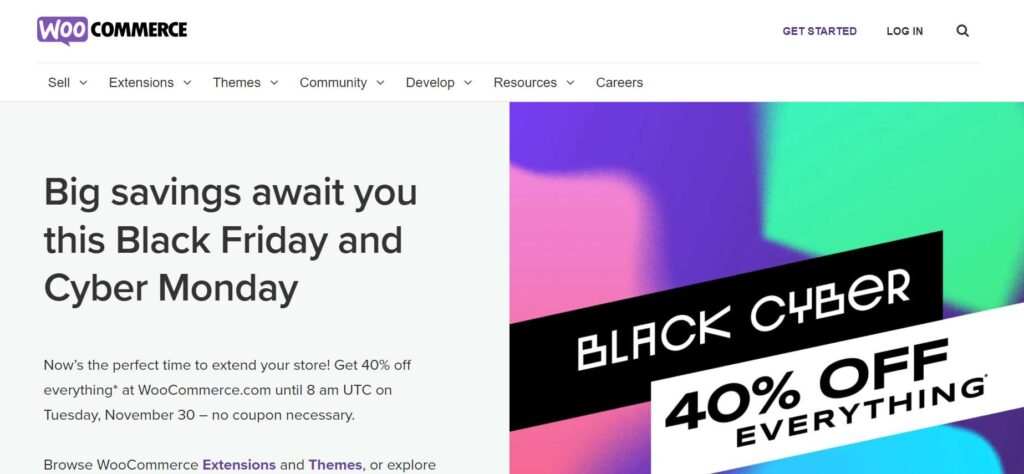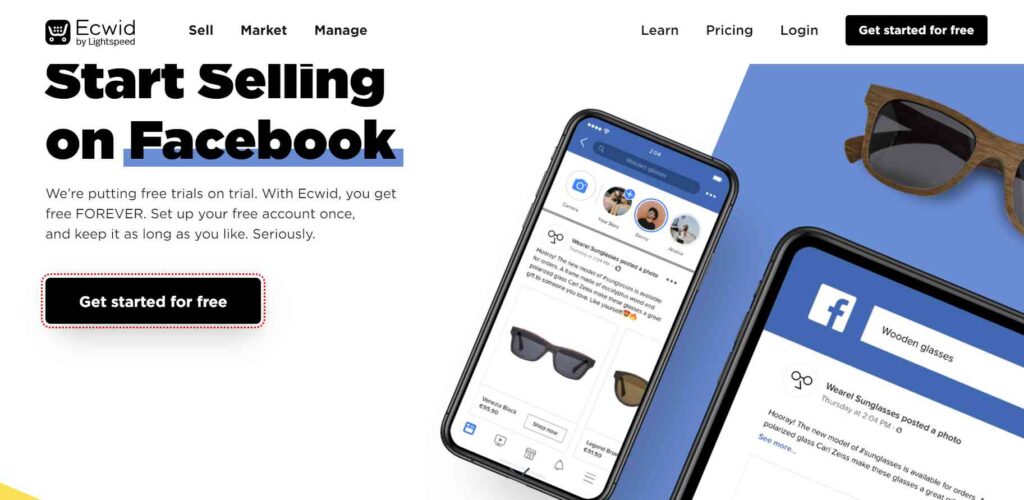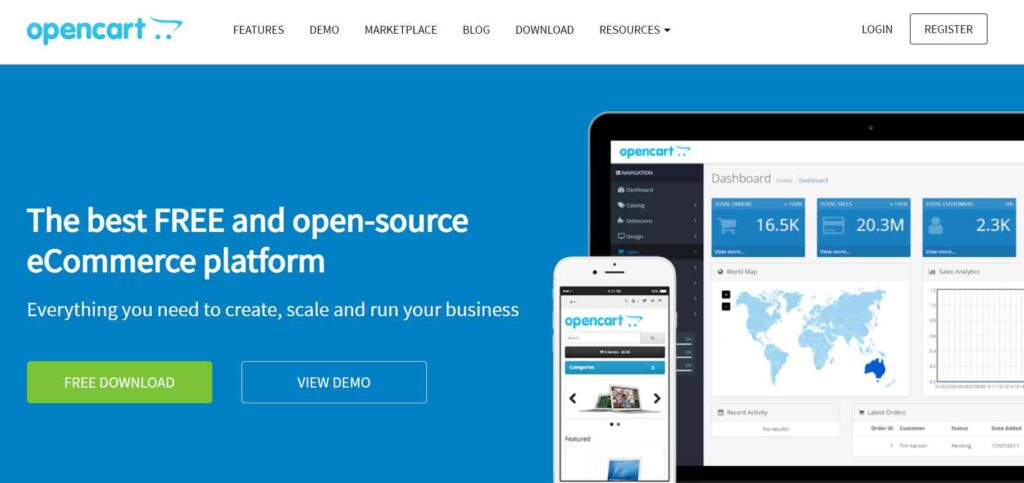Why Do You Need Shopify Alternatives For Building Ecommerce Stores?
There are many reasons why you might need Shopify alternatives for building ecommerce stores. Perhaps you’re looking for a more affordable option, or one with more features. Maybe you’re not happy with Shopify’s customer service or you simply want to try something new. Whatever the reason, there are plenty of great Shopify alternatives out there. Wix is a popular Shopify alternative that offers a more user-friendly platform and lower monthly fees.
BigCommerce is another popular option, with more features and a higher price tag. Volusion is another option that’s similar to Shopify in terms of features and price. Ultimately, the best Shopify alternative for you will depend on your specific needs and budget.
List of Top Shopify Alternatives Free and Paid Software To Skyrocket Productivity
1. PinnacleCart

Pros
- 1. Easy to Use and Flexible Platform
- 2. Professional Looking Layouts and Templates
- 3. Robust Customization Options
- 4. Comprehensive Reporting Features
- 5. Mobile-Friendly Design
- 6. Secure Payment Gateways
- 7. Powerful SEO Features
- 8. Integrated Shipping Solutions
Cons
- 1. Limited Customization Options For Advanced Users
- 2. Limited Third-Party Integrations
- 3. No Built-In Point of Sale Feature
- 4. Pricey Plans For Multiple Stores
2. Shift4Shop

Pros
- 1. Easy to Use Platform with Advanced Features
- 2. Manage Multiple Stores in One Place
- 3. Affordable Plans and Subscription Options
- 4. Comprehensive Payment Processing Solutions
- 5. Secure Shopping Cart and Checkout Process
- 6. SEO-Friendly Features for Increased Visibility
- 7. Integrations with Popular Third-Party Applications
- 8. Comprehensive API for Customization
Cons
- 1. Lack of Flexibility in Design Options
- 2. Limited Support for International Taxes and Shipping Rules
- 3. Limited Customization of Storefronts and Themes
- 4. Difficulty Integrating with External Platforms
Pros
- 1. Easy to Use Website Builder
- 2. Drag and Drop Interface
- 3. WYSIWYG (What You See Is What You Get) Editor
- 4. Wide Range of Themes and Templates
- 5. Hundreds of App Integrations
- 6. SEO Optimization Tools
- 7. Mobile App for Easy Editing on the Go
- 8. Simple eCommerce Solutions
- 9. Secure Hosting Platform With High Uptime Rates.
Cons
- 1. Limited Customization Options for Advanced Users
- 2. Poor Performance on Some Templates
- 3. Limited Functionality for Non-Premium Users
- 4. Expensive Premium Plans Compared to Competitors
- 5. No 24/7 Live Support
- 6. No Free Domain Name Registration
3. Wix

Pros
- 1. Easy to Use Website Builder
- 2. Drag and Drop Interface
- 3. WYSIWYG (What You See Is What You Get) Editor
- 4. Wide Range of Themes and Templates
- 5. Hundreds of App Integrations
- 6. SEO Optimization Tools
- 7. Mobile App for Easy Editing on the Go
- 8. Simple eCommerce Solutions
- 9. Secure Hosting Platform With High Uptime Rates.
Cons
- 1. Limited Customization Options for Advanced Users
- 2. Poor Performance on Some Templates
- 3. Limited Functionality for Non-Premium Users
- 4. Expensive Premium Plans Compared to Competitors
- 5. No 24/7 Live Support
- 6. No Free Domain Name Registration
4. WooCommerce

Pros
- 1. Easy to set up and use
- 2. Highly customizable
- 3. Offers a range of features and integrations
- 4. Cost-effective solution for businesses of all sizes
- 5. Secure payment gateway options
- 6. Variety of payment methods accepted
- 7. Mobile friendly and responsive design
- 8. Comprehensive support system
- 9. Easy to manage inventory, shipping, and taxes
Cons
- 1. Not as feature rich as some competitors
- 2. Can require technical knowledge to customize
- 3. Can be difficult to troubleshoot issues
- 4. High fees for certain payment gateways
- 5. Lack of control over hosting environment
5. Magento

Pros
- 1. Open-source platform – easy to customize and extend
- 2. Highly Scalable – can grow as business grows
- 3. Easy to use and manage
- 4. Variety of language/currency options
- 5. Secure platform with advanced security features
- 6. Advanced SEO capabilities
- 7. Mobile friendly with responsive themes
- 8. Robust API for third-party integrations
- 9. Comprehensive range of payment gateways supported
Cons
- 1. Costly installation, setup and customization
- 2. Not beginner friendly, require technical expertise to get started
- 3. Limited hosting options – best hosted on Magento’s own cloud service or similar quality systems
- 4. Limited design options compared to other platforms like Shopify
- 5. High cost of ongoing maintenance and support
6. Prestashop

Pros
- 1. Easy to use, even for beginners
- 2. Intuitive and user-friendly interface
- 3. Responsive design options for mobile users
- 4. Wide range of features and tools for customization
- 5. Flexible payment options for customers
- 6. Compatible with multiple languages, currencies and taxes
- 7. Comprehensive support services and documentation
Cons
- 1. Limited selection of free templates
- 2. Not as many integrations compared to other platforms
- 3. Upgrading to a higher plan can be expensive
- 4. Some features are only available with paid add-ons
7. Volusion

Pros
- 1. Easy to use interface
- 2. Flexible pricing plans
- 3. Robust feature set
- 4. Comprehensive analytics and reporting tools
- 5. Ability to create custom designs and themes with HTML/CSS
- 6. Ability to accept payments from multiple sources
- 7. 24/7 customer support available for assistance
- 8. Mobile responsive design for optimal user experience on mobile devices
Cons
- 1. Lack of third-party integration options compared to other ecommerce platforms
- 2. Limited customization options compared to other ecommerce platforms
- 3. Poor SEO capabilities compared to other ecommerce platforms
- 4. Expensive payment processing fees
- 5. No built-in blog feature
8. Weebly

Pros
- 1. Easy to Set Up and Use
- 2. Responsive Design for Mobile Devices
- 3. Ability to Add Custom HTML and CSS Code
- 4. Widgets and Apps for Adding Functionality
- 5. SEO Friendly Features
- 6. Affordable Pricing Options
- 7. Professional Templates and Design Options
- 8. Drag-and-Drop Editor Makes Site Design Simple.
Cons
- 1. Limited Performance Features Without Upgrading Plan
- 2. Lack of Intuitive Interface for Advanced Users
- 3. Third-Party Apps Can Slow Loading Times.
9. Ecwid

Pros
- 1. Easy to Use Platform
- 2. Cost-effective for Small Businesses
- 3. Integrates with Multiple Platforms and Payment Systems
- 4. Comprehensive List of Features and Services
- 5. Secure Shopping Cart
- 6. Detailed Reports and Analytics
- 7. Flexible Customization Options
Cons
- 1. Limited Support Options
- 2. Limited Design Templates
- 3. Not Suitable for Large Enterprises
- 4. Basic SEO Options
10. OpenCart

Pros
- 1. Open Source Platform – Free to Use
- 2. Easy to Install and Configure
- 3. Multiple Payment Options Available
- 4. Variety of Extensions and Add-ons for Advanced Features
- 5. Responsive Design for Mobile Shopping Experiences
- 6. SEO Friendly Architecture
- 7. Reliable Customer Support
- 8. User-Friendly Admin Interface
- 9. Supports Multiple Languages and Currencies
Cons
- 1. Limited Design Customization Options
- 2. Basic Reporting Features
- 3. Lack of Mobile App Development Options
- 4. Limited Support from OpenCart Community
Why You Should Choose Best Shopify Alternatives For Drop Shipping?
For those looking to start an online business, Shopify is an intuitive and powerful platform for creating an ecommerce store. However, there are a wide variety of alternatives that offer unique features and benefits that may be better suited for certain types of businesses.
Choosing the best Shopify alternative to suit your needs can help you save time and money in the long run, making it a great option for those looking to start a drop shipping business. With the right platform, you can easily create a professional website that will help you reach more customers and increase sales.
How Shopify Alternatives Open Source Software For Small Businesses Are Productive?
For small businesses, open source software is a great alternative to Shopify as it is often less expensive and can be customized to meet specific business needs. It is also typically more secure than its proprietary counterparts, making it a great choice for those who need to protect their customers’ data.
Open source software can also be easier to maintain, as the code is readily available for troubleshooting and updating. The use of open source software can lead to increased collaboration within the business, as employees can work together to customize and update the software in order to make it more effective.
With these advantages in mind, it’s easy to see why open source software can be a great option for small businesses looking for a reliable and cost-effective way to manage their operations.
List of Shopify Competitors You Should Know About
If you’re in the market for an alternative to Shopify, there are many options available. From BigCommerce to Squarespace, there are a variety of competitors that provide similar services to Shopify.
Each of these companies offers different features and pricing models, so be sure to compare and contrast them before making a final decision. With a bit of research, it’s possible to find the best Shopify competitor for your business needs.
- BigCommerce
- WooCommerce
- Magento
- Squarespace
- Wix
- Volusion
- OpenCart
- PrestaShop
Why Ecommerce Merchants Need Alternatives To Shopify?
- Shopify is expensive
- Lack of customization options
- Limited third-party integrations
- Poor customer support
- Difficult scalability
- No multi-store capabilities
- Weak reporting features
Shopify is widely known as one of the most powerful and popular ecommerce solutions in the world. However, it may not be the right fit for every merchant. With different pricing plans, features, and functionality, there are a number of alternatives to Shopify that merchants should consider when choosing an ecommerce platform.
Alternatives to Shopify offer merchants a variety of options for creating an online store, allowing them to find the best fit for their business and budget. From start-ups to large enterprises, there is an alternative to Shopify that can meet the needs of any merchant.
How To Create Websites Like Shopify For Building An Online Store?
Creating an online store can be a daunting task, but with the right resources and platforms, it can be achieved easily. Shopify is one of the most popular solutions for creating an online store, but there are alternatives that can provide an equally powerful and functional experience.
From self-hosted solutions to open source options, there are a variety of options available to help you create websites like Shopify to build an online store. Each option has its own set of advantages and disadvantages, so it is important to research each one carefully to make sure it meets your business’s needs. Once you have determined the best platform for your business, it is time to start building your online store.
What are Different Sites Like Shopify For Selling Products?
For those who are looking for an alternative to Shopify for selling products online, there are a few options available. BigCommerce, WooCommerce, and Squarespace are all great options for setting up an e-commerce store.
BigCommerce and WooCommerce provide easy-to-use templates and plugins to help with store setup and customization, while Squarespace offers high-quality designs to give stores a more professional look. Each of these sites also offer powerful features like analytics, marketing tools, and payment processing, making them great alternatives to Shopify.
How To Use Shopify Payment Options To Start And Grow Your Online Business?
Shopify is a popular e-commerce platform for entrepreneurs looking to start and grow their online businesses. While Shopify does offer many advantages, there are also several alternatives to consider.
Whether you’re looking for more payment options, more customization, or more features, there are a variety of shopify alternatives available to suit your needs. By exploring all the options, you can select the best option to start and grow your online business.
What are Websites Similar To Shopify For Online Clothing Business?
For those looking for alternatives to Shopify for an online clothing business, there are several options available. BigCommerce, Volusion, and Wix are some of the popular alternatives that provide hosting and ecommerce services.
Each platform has its own set of features and costs associated with them, so it’s important to do research and find the one that best fits the needs of the business. Additionally, users can consider more specialized ecommerce solutions such as Squarespace or Magento for their online clothing store. Ultimately, it’s important to find a platform that is user-friendly, cost-effective, and provides the necessary features to run a successful online clothing business.
What is the Best Shopify Open Source Alternative For Shoes Business?
- WooCommerce
- Magento
- PrestaShop
- OpenCart
- BigCommerce
- Shopify Plus
- Squarespace Commerce
How To Find Websites Similar To Shopify?
If you’re looking for a website builder similar to Shopify, there are several options available. Popular alternatives include BigCommerce, Volusion, Wix, and Squarespace. Each of these websites provide users with an easy-to-use interface that makes setting up an online store simple and straightforward. Depending on your budget and preferences, you can select the website that best suits your needs.
How To Create Websites Like Shopify For Free?
Creating a website like Shopify doesn’t have to be expensive. There are a variety of free alternatives available that can be used to create a successful online store. With the right tools, such as WordPress, WooCommerce, and Magento Open Source, it is now possible to create an online store that rivals Shopify’s features and functionality without the costly fees associated with their platform. With a little bit of research and dedication, entrepreneurs can find the perfect free platform to suit their needs.
What are Cheaper Alternative To Shopify For Freelancing Service Business?
For those looking for a cheaper alternative to Shopify for their freelancing service business, there are a few options to consider. Squarespace, Wix, and WooCommerce are all viable options that offer lower costs than Shopify, while still providing features and services for running a successful business. These alternatives provide businesses with website building tools, domain hosting, and payment processing services. Each platform offers different levels of customization and features, so it is important to research each option to determine the best fit for your business.
Conclusion
In conclusion, there are many excellent Shopify alternatives on the market that offer a variety of features to suit the needs of a wide range of businesses. Whether you’re looking for something that provides more payment options, better customer service, or more customizable templates, there’s an alternative out there for you. Consider your specific business needs carefully and do your research before choosing the best Shopify alternative for you.
- Gulf Shores Getaway: 25 Exciting Things to Do and See in Alabama’s Hidden Coastal Gem! - May 31, 2023
- Lexington, KY: 25 Things to Do and See in the Horse Capital of the World! - May 29, 2023
- Atlantic City Adventures: 25 Things to Do and See in the Entertainment Capital of the Jersey Shore! - May 27, 2023


Pingback: 33 Best Business Ideas In Small Towns-TWB